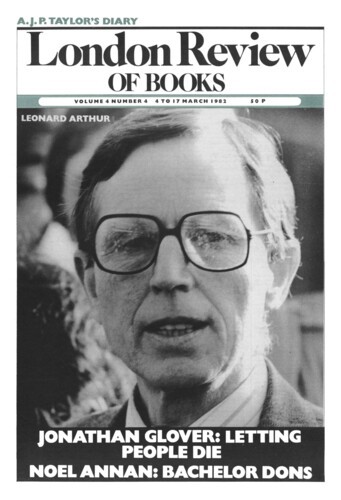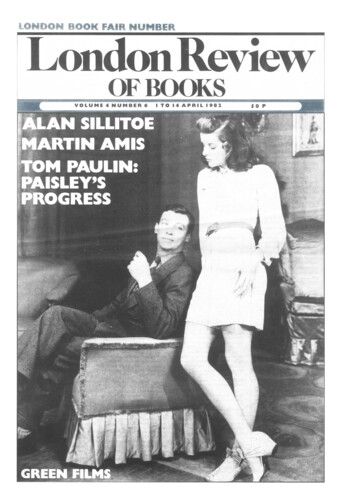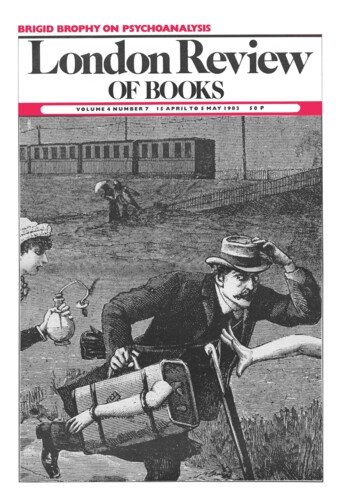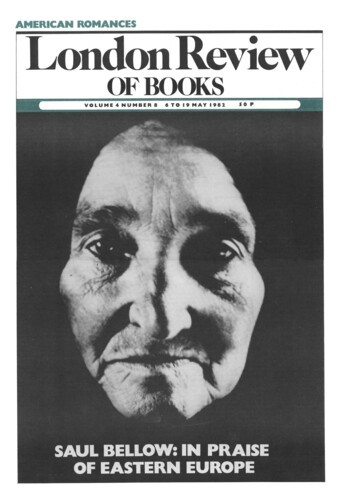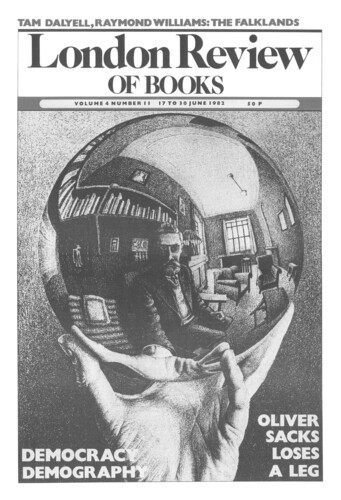Diary: What on earth should I talk about?
A.J.P. Taylor, 4 March 1982
At first sight, 1982 is not a promising year for anniversaries. Almost the only one is just approaching. The Home Office and the Foreign Office were both founded in 1782 – products of a short-lived Whig ministry. This earth-shaking event is to be celebrated by a series of lectures for each Office. I was invited to give a lecture and was then struck off when I revealed that I do not lecture from a script. Perhaps it was wise to eliminate me. No doubt I should not have been able to resist John Bright’s definition of British foreign policy as ‘a gigantic system of out-relief for the British aristocracy’. 1882 is even less fertile. All I can discover is that in 1882 Charles Bradlaugh, the atheist, administered the oath to himself in the House of Commons. But try the half-centuries and relief is at hand. On 4 June 1832 the great Reform Bill became law under the name of the Representation of the People Act – quite a misnomer, in fact: only a small minority of the British people possessed the vote even after the Reform Bill. It took just under a century for them to reach something like universal suffrage. Nevertheless, the Reform Bill started the process. To adapt Macaulay’s sentence about the Glorious Revolution of 1688, it was because we had the Reform Bill in 1832 that we did not have a revolution in the 20th century. Parliamentary democracy stemmed from the Reform Bill, though this was far from the intention of those who promoted it. Present-day radicals are often impatient with the House of Commons. I think they are wrong: the Constitution is the foundation of our liberties, particularly as constantly reformed. So God bless Lord Grey of the Reform Bill and the Whigs who reluctantly supported him.
